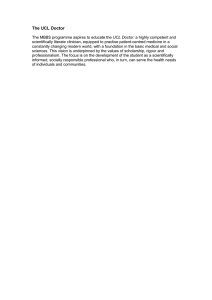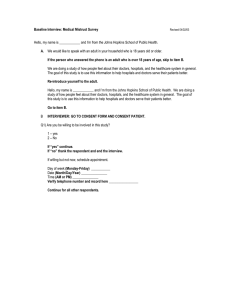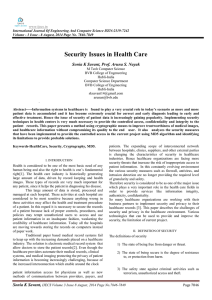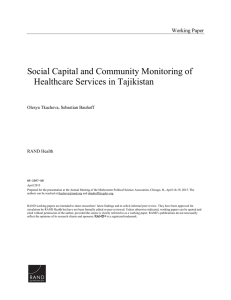Principles for the MBBS Strategic Review April 2010
advertisement
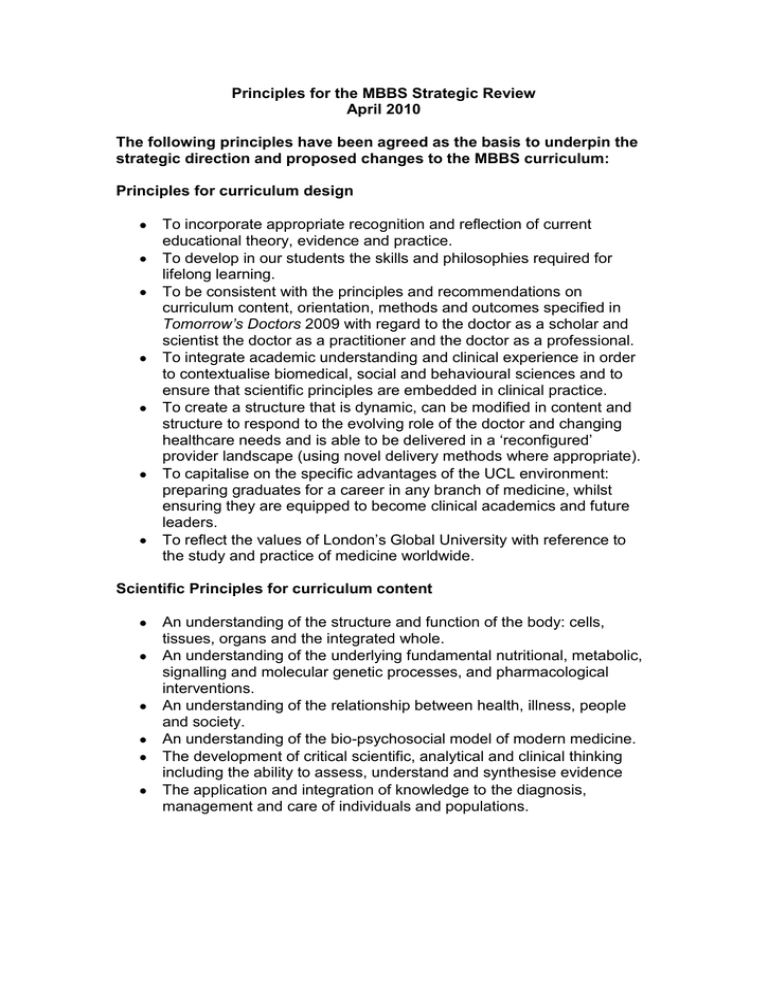
Principles for the MBBS Strategic Review April 2010 The following principles have been agreed as the basis to underpin the strategic direction and proposed changes to the MBBS curriculum: Principles for curriculum design To incorporate appropriate recognition and reflection of current educational theory, evidence and practice. To develop in our students the skills and philosophies required for lifelong learning. To be consistent with the principles and recommendations on curriculum content, orientation, methods and outcomes specified in Tomorrow’s Doctors 2009 with regard to the doctor as a scholar and scientist the doctor as a practitioner and the doctor as a professional. To integrate academic understanding and clinical experience in order to contextualise biomedical, social and behavioural sciences and to ensure that scientific principles are embedded in clinical practice. To create a structure that is dynamic, can be modified in content and structure to respond to the evolving role of the doctor and changing healthcare needs and is able to be delivered in a ‘reconfigured’ provider landscape (using novel delivery methods where appropriate). To capitalise on the specific advantages of the UCL environment: preparing graduates for a career in any branch of medicine, whilst ensuring they are equipped to become clinical academics and future leaders. To reflect the values of London’s Global University with reference to the study and practice of medicine worldwide. Scientific Principles for curriculum content An understanding of the structure and function of the body: cells, tissues, organs and the integrated whole. An understanding of the underlying fundamental nutritional, metabolic, signalling and molecular genetic processes, and pharmacological interventions. An understanding of the relationship between health, illness, people and society. An understanding of the bio-psychosocial model of modern medicine. The development of critical scientific, analytical and clinical thinking including the ability to assess, understand and synthesise evidence The application and integration of knowledge to the diagnosis, management and care of individuals and populations. Principles for the development of the practitioner Encouraging a patient-centred approach recognising that health is coproduced. Providing a profound grounding in clinical skills. Providing extensive clinical exposure to create a foundation of experience. Encouraging an awareness of resource constraint and the importance of the doctor functioning in an evidence-based and cost-effective manner for the benefit of all patients. Attention to the transition from student to doctor and facilitating the acquisition of responsibility for decisions and practice. Familiarity with, and ability to practice in, a contemporary range of healthcare environments. An appreciation of the role of the future doctor within the healthcare environment in the UK and globally. Principles which support UCL’s mission To integrate as far as possible with the emerging academic themes and research base in UCL-Partners, using our institutional expertise as a unique opportunity to strengthen the course and effect health gain.
